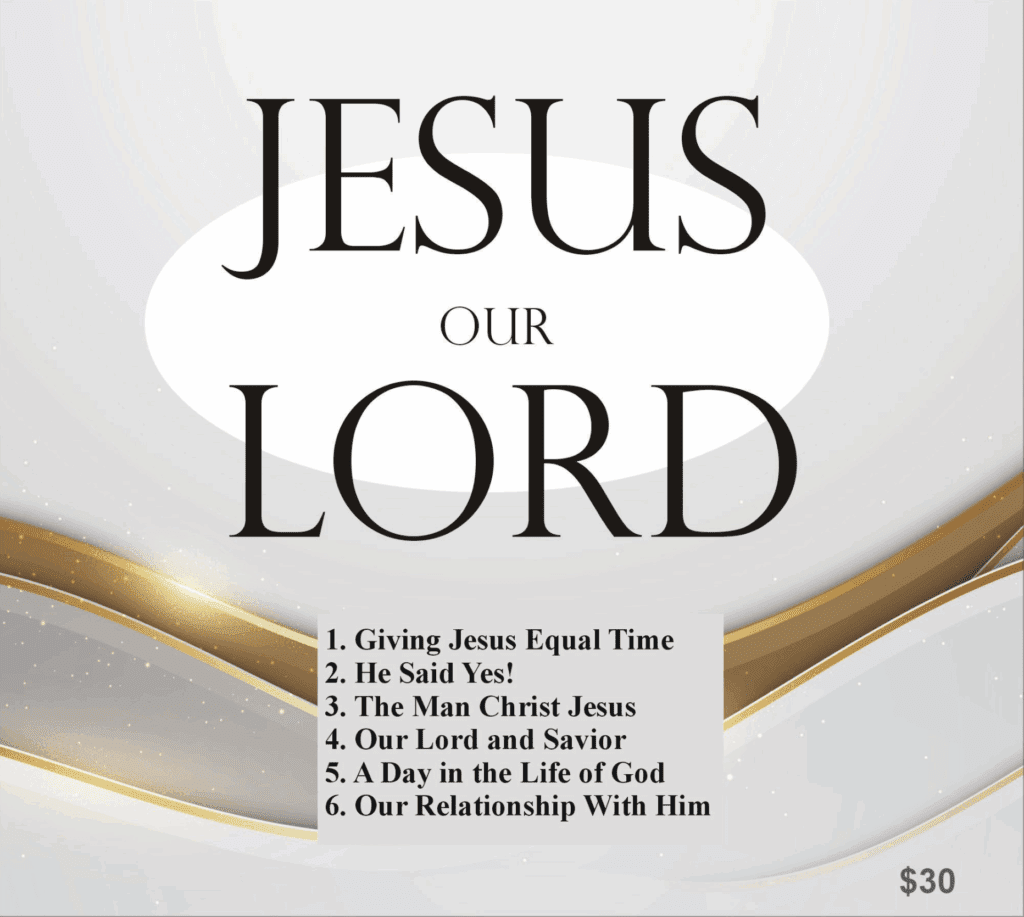In Jesus’ day, there was no consensus about who He really was—and over 2,000 years later, not much has changed. Opinions about Jesus range from calling Him a wise teacher or moral leader to recognizing Him as the Son of God. This disagreement isn’t new. In fact, John 7:43 tells us, “So there was a division among the people because of Him.”
That division continues today.
Many acknowledge Jesus’ historical existence and moral influence, yet stop short of embracing His divinity. This is not a small oversight—it’s a critical error. The Apostle John writes, “Who is a liar but he who denies that Jesus is the Christ? He is antichrist who denies the Father and the Son” (1 John 2:22).
Jesus is not a neutral figure. He is, by His own words and actions, a dividing line in human history—literally and spiritually. His arrival split time into B.C. and A.D. His presence continues to divide families, religions, cultures, and individuals.
So the real question isn’t whether Jesus was a good man.
The real question is: Would a good man say and do the things Jesus did?
A Divider, Not Just a Peacemaker
Jesus Himself warned that His coming would bring conflict. In Matthew 10:34–35, He says:
“Do not think that I came to bring peace on earth. I did not come to bring peace but a sword. For I have come to set a man against his father, a daughter against her mother…”
That sounds strange to our modern ears, but Jesus was pointing to the inevitable division that would come when people had to choose whether to follow Him. There is no middle ground with Jesus. He doesn’t give us the option of simply admiring Him.
He forces a decision—Messiah or imposter? Savior or fraud?
What Did Jesus Actually Claim?
If Jesus was just a good man or prophet, we would expect Him to deny any divine status. But He didn’t. In fact, His words repeatedly affirmed His identity as God in the flesh.
Peter’s Confession
In Matthew 16:15–16, Jesus asks His disciples who they think He is. Peter replies, “You are the Christ, the Son of the living God.” Jesus doesn’t correct him. Instead, He affirms it:
“Blessed are you, Simon Bar-Jonah, for flesh and blood has not revealed this to you, but My Father who is in heaven” (v. 17).
A mere good man wouldn’t let someone call him the Son of God without clarifying. But Jesus embraces it.
The Great “I AM”
In John 8:58, Jesus says to the Pharisees, “Before Abraham was, I AM.” This wasn’t just poetic language. He was using the sacred name God used when speaking to Moses at the burning bush. Jesus was directly claiming to be eternal God.
Again, this is not the language of a humble teacher or prophet. This is either blasphemy—or the truth.
The Bread of Life and the Line in the Sand
In John 6, Jesus performs the miracle of feeding 5,000 with loaves and fish. The crowd, amazed and hungry for more, seeks Him out. But Jesus doesn’t give them more food. Instead, He makes one of His most controversial statements:
“I am the bread of life. He who comes to Me shall never hunger…” (John 6:35)
“The bread that I shall give is My flesh, which I shall give for the life of the world” (John 6:51)
“Whoever eats My flesh and drinks My blood has eternal life…” (John 6:54)
To the people listening, this sounded shocking—even offensive. Many walked away from Him that day. John 6:66 tells us, “From that time many of His disciples went back and walked with Him no more.”
No “good man” says things that deliberately cause mass desertion—unless those things are true and eternally significant.
Direct Declarations of Divinity
In His conversation with the woman at the well (John 4), Jesus doesn’t hide His identity. When she mentions the coming Messiah, Jesus says:
“I who speak to you am He” (John 4:26).
In John 9, after healing a man born blind—a miracle no one could deny—Jesus finds the man again and asks, “Do you believe in the Son of God?” When the man asks who that is, Jesus replies, “You have both seen Him and it is He who is talking with you.” (John 9:35–37)
The man’s response? “Lord, I believe!” And he worshiped Him.
Jesus accepts that worship. Good men don’t accept worship. Only God does.
What Do We Do With All This?
C.S. Lewis put it best in Mere Christianity:
“You must make your choice. Either this man was, and is, the Son of God: or else a madman or something worse… But let us not come with any patronizing nonsense about His being a great human teacher. He has not left that open to us. He did not intend to.”
Jesus was not vague or ambiguous about who He claimed to be. He claimed to be God. He acted with divine authority. He received worship. He promised eternal life.
If that’s not true, He’s not a “good man”—He’s the worst kind of deceiver. But if it is true, then He is the only one worthy of our worship, obedience, and full surrender.
Final Thought: Who Do You Say He Is?
Every person must eventually answer the same question Jesus asked Peter:
“Who do you say that I am?” (Matthew 16:15)
The answer will define your eternity.
Jesus is not just a historical figure, a wise teacher, or a cultural icon. He is either a liar, a lunatic, or the Lord. There is no neutral ground.
Your decision about who Jesus is—not just in your head, but in your heart—is the most important one you will ever!
Jesus Our Lord
A Teaching Series on the Person and Power of Christ

In a world filled with uncertainty and conflict, there is no greater source of hope, clarity, and peace than Jesus. He is Lord—unchanging, eternal, and worthy of our full attention.
In this powerful series, we explore the fullness of who Jesus is: His deity and humanity, His eternal existence, His supremacy, and His living relationship with us today. Jesus is not only the greatest man who ever lived—He is God with us. As you turn your focus toward Him, fear gives way to faith, and joy takes root in your heart.
Let this series help you see Jesus more clearly and draw nearer to Him than ever before.
Available Formats:
Audio CD, MP3 Download, or USB Drive
Track Titles:
- Giving Jesus Equal Time
- He Said Yes!
- The Man Christ Jesus
- Our Lord and Savior
- A Day in the Life of God
- Our Relationship with Him


What a wonderful blog. Thank you. I love your teachings. Thank you.
Such a beautiful and to the point article. It gives a pereon something to really thing about decide without hesitation who Jesus is.
God bless